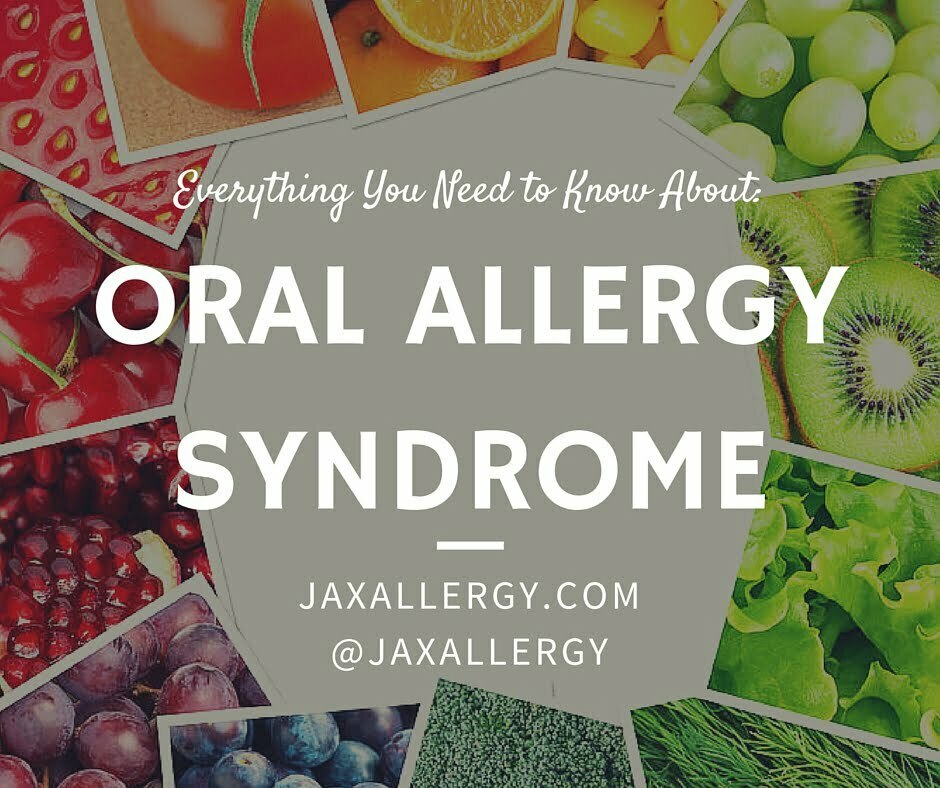About Oral Allergy Syndrome: Symptoms & Treatments

Updated Jan 2023
Do you experience allergic symptoms in the mouth when eating certain raw foods? If you do, you could be suffering from oral allergy syndrome.
Oral allergy syndrome (a form of a food allergy) is actually fairly common for seasonal allergy sufferers. As people with seasonal allergies eat uncooked or raw fruits, vegetables, and some nuts, the immune system in their mouth can mistake certain proteins in the raw food as pollens and a local allergic reaction follows.
Learn more about oral allergy syndrome including the causes and how you can treat the symptoms.
What Is Oral Allergy Syndrome?
Oral allergy syndrome (OAS) is also known as pollen-food allergy syndrome. This is caused by cross-reacting allergenic proteins found in airborne pollens and raw vegetables, fruits, and tree nuts.
The immune system of individuals with seasonal allergies recognizes similar appearing proteins in raw foods as allergens, which causes a local allergic reaction inside the mouth.
Raw foods tend to cause the most allergic reactions. Often times, the allergy sufferers won’t experience an allergic reaction when the food is heated and cooked. This is because heating changes the molecular structure of the protein and renders it non-allergenic.
What Causes Oral Allergy Syndrome?
Not everyone with a pollen allergy will experience oral allergy syndrome. Common triggers for oral allergy syndrome include:
- Grass Pollen – cross reacts with foods including peaches, oranges, melons, tomato, and celery
- Birch Pollen – cross reacts to foods including peaches, pear, plum, kiwi, cherry, apple, hazelnut, almond, carrot, and celery
- Ragweed Pollen – cross reacts with foods including melons, banana, cucumber, zucchini, and sunflower seeds
What Are Oral Allergy Syndrome Symptoms?
Oral allergy syndrome symptoms are typically experienced immediately after coming in contact with food. These uncomfortable allergic reactions can include:
- Itchy mouth
- Scratchy throat
- Mild swelling of lips, mouth, tongue, and throat
- Itchy ears (in some cases)
Most of these symptoms are concentrated in the mouth area and do not spread; however, there have been rare reports of more severe and systemic symptoms. Symptoms typically occur quickly as the fresh fruit or raw vegetable reaches the mouth. After swallowed or removed, the allergic symptoms may subside within minutes to one hour.
Most Common Oral Allergy Syndrome Culprits
How Do You Avoid It?
The best way to avoid oral allergy syndrome symptoms is by avoiding raw foods known to be problematic. Be aware of your pollen allergies and which foods are associated with certain pollen proteins.
An allergist can help diagnose which pollens and foods cause allergic reactions by reviewing your clinical history, conducting skin pricks, and performing oral food tests with raw fruit and vegetables.
By educating yourself about the foods causing the problem, you can avoid the reaction from taking place.
What are Your Options for Oral Allergy Syndrome Treatment?
Though symptoms may subside in a few minutes or within the hour, don’t ignore allergic symptoms when they occur. Stop eating foods which cause an allergic reaction and take an antihistamine to relieve itchiness.
Consult with your allergist when you or your child experience oral allergy syndrome symptoms. Symptoms may occur in children as young as 3 or 4 or begin later in life for adults. An allergist can conduct food allergy tests to pinpoint which foods are causing allergic reactions and whether it’s oral allergy syndrome or another kind of food intolerance.
Interested in discovering if you suffer from oral allergy syndrome and seasonal allergies? Contact the Allergy & Asthma Specialists of North Florida for more information.
